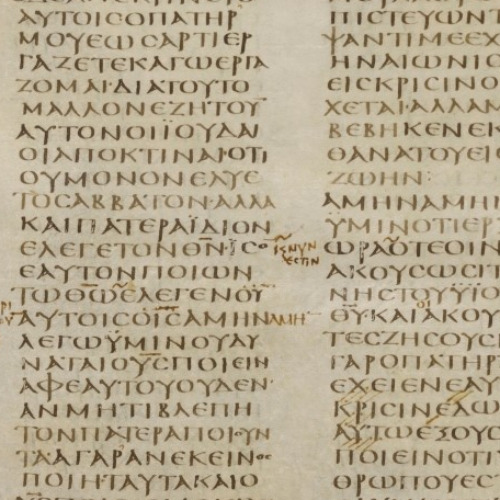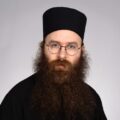
Eastern Christian Daily Office
Leaders
The aim of our research group is to study the daily liturgical (non-eucharistic) services of Eastern Churches. Our homebase is the School of Theology of the University of Eastern Finland, but our group includes members from different European and North American academic institutions, as well. Until 2024, we were based at the Faculty of Theology of the University of Oslo, where the group was originally founded in 2017 under the title “Hymnography of Constantinople”. Our activities include regular research meetings between the group members, academic conferences and workshops, as well as creating joint research projects.
The leader of our group is Damaskinos Olkinuora (University Lecturer, University of Eastern Finland), and the other members of our steering group are prof. emeritus Stig Frøyshov (University of Oslo) and Alexander Andreev (University of Oslo), who is also the group’s secretary.
While in churches of Western traditions today the Daily Office is little practiced apart from monasteries, in Late Antiquity and the Middle Ages, the Daily Office was more visible and voluminous than the Eucharist in any worshipping community. Rather than an unusual and peripheral phenomenon, the Daily Office appeared as a central and extensive part of parish liturgy.
The research group focuses on the following areas:
- The Jerusalem Daily Office and itse spread to other churches, including the Byzantine one. The Daily Office of the Resurrection Cathedral of Jerusalem was widely observed in churches and monasteries dependent on this episcopal see. From the fifth century onward, Caucasian churches adopted the Jerusalem Daily Office, and in the following centuries the patriarchates of Antioch, Alexandria, and Constantinople did the same. From the ninth-tenth centuries onward, it was the dominant Daily Office of the Byzantine world.
- The birth and development of hymnographic genres, concentrating especially on genres that have been studied little, such as the kata stichon verse hymns. This genre was relatively popular in the first millennium, but after that it mainly fell into oblivion. In 2019, our research group organized an international workshop on this topic, and its proceedings are expected to be published in the near future.
Leaders
Professors
-

Serafim Seppälä
ProfessorSchool of Theology, Philosophical Faculty -

Maria Takala-Roszczenko
Associate ProfessorSchool of Theology, Philosophical Faculty
Other group members
-
Stig Simeon R. Frøyshov [email protected]
-
Aleksandr Andreev [email protected]
-
Dimitrios Skrekas [email protected]
-
Gregory Tucker [email protected]
-
Enrique Santos Marinas [email protected]
-
Daniel Galadza [email protected]
-
Stefanos Alexopoulos [email protected]
-
Harald Buchinger [email protected]
-
Natalia Smelova [email protected]
-
Alexander Lingas [email protected]

